South Africa
The playmakers, the young Turks and the triggermen: Who to watch in Mangaung
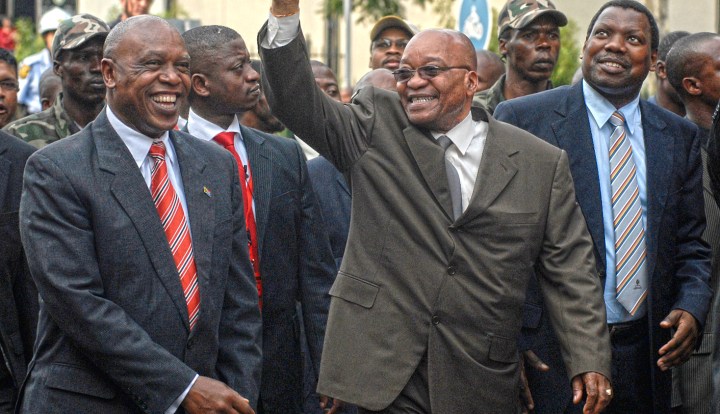
The elections of the ANC’s top leadership will obviously be the central attraction at the party’s 53rd national conference which starts on Sunday in Mangaung. All eyes will of course be on Jacob Zuma, Kgalema Motlanthe, Cyril Ramaphosa, Tokyo Sexwale and Mathews Phosa to see how the race for the top two positions pans out. But there are personalities among the 4,500 delegates who will be running the power play and pressing the buttons behind the scenes. They are the people to watch, now and for the next five years. By RANJENI MUNUSAMY.
Paul Mashatile
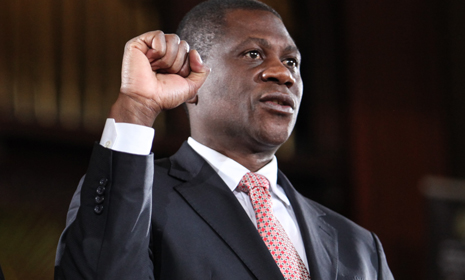
He is the ANC chairman in Gauteng, which therefore makes him one of the most powerful men in the country, pulling the strings in the country’s most influential province. He has always managed to outsmart his rivals in power battles in Gauteng. Although he holds a low profile portfolio in the national Cabinet, his real power is in the party, where he is known for strategic manoeuvring. At the Polokwane conference in 2007, the national general council (NGC) in Durban in 2010 and the June policy conference, Mashatile made tactical interventions to break logjams. He is the face of the Force of Change camp, but as a playmaker, always has a hotline to the opposing camp. Mashatile chairs an informal structure of provincial chairmen where the behind-the-scenes horse-trading is done. He knows that unless there are serious changes in the ANC, his Gauteng power-base will come under serious threat from the Democratic Alliance in the 2014 elections. His advocacy for change in Mangaung is therefore also a fight for survival.
Zweli Mkhize
The KwaZulu-Natal Premier and ANC chairman in that province was at one stage Jacob Zuma’s closest ally and perhaps the person the president most relied on for his political and personal survival. Then the former crime intelligence boss Richard Mdluli, through his discredited intelligence document, cast Mkhize in a plot to unseat Zuma. While there has been a cooling in the relationship, Mkhize has remained fiercely loyal to the president. As the head of the ANC’s biggest province, which also happens to be Zuma’s homebase, Mkhize has had to assume the lead position in the campaign for the president’s second term. Mkhize has received the most nominations from the provinces for the position of national treasurer, which means he is destined to move out of KwaZulu-Natal to a position in the national Cabinet after the next election. As a medical doctor, he has a gentle bedside manner, which he uses as a persuasion tactic even in tough negotiations. Mkhize has tried to move KwaZulu-Natal away from the image of being the big bully on the playground to a more reconciliatory role.
Nathi Mthethwa
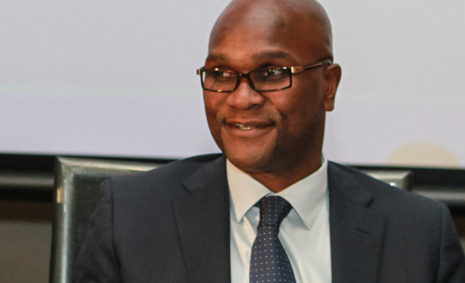
Photo by Jordi Matas
While Mkhize is the reconciler from KwaZulu-Natal, Mthethwa is the enforcer. During the policy conference, he directed KwaZulu-Natal to take an unyielding stance on most issues. As with his police portfolio, Mthethwa couldn’t care less about niceties and is a hardliner in the Zuma camp. He secured his place in Zuma’s inner circle during the president’s corruption trial, and later, after being appointed Minister of Police, established himself as Zuma’s hatchet man. He is now one of Zuma’s closest lieutenants and a key lobbyist for the president’s re-election. His peers in the ANC find him difficult to work with owing to his uncompromising stance. The coincidence of his portfolio as police minister and chief Zuma supporter puts him in a convenient and strategic position to use the state to help his cause. Already a covert 40-member crime intelligence team is operating in Manguang, sniffing out would-be troublemakers in the anti-Zuma camp. His destiny is linked to Zuma’s – once the president leaves office, Mthethwa will find it difficult to retain his powerful position in the state and the ANC.
Fikile Mbalula
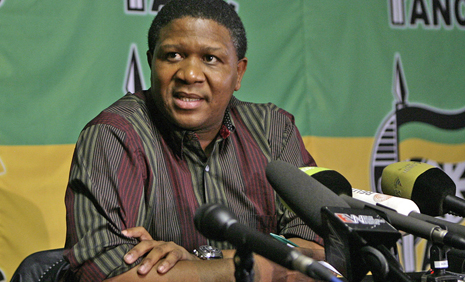
Mbalula’s doomed campaign to replace Gwede Mantashe as secretary general has deflated him immensely. Mr Razzmatazz put much of his focus on his government portfolio once he realised that 2012 would not be his year. The expulsion of Julius Malema from the ANC meant that he lost his campaign manager, and he has not been able to revive his bid to be the operational boss of the ruling party. But Mbalula has enormous skill as an organiser and campaigner, and is essential to the ANC’s election machinery. Mbalula is also extremely charismatic and can sway a crowd. He has a flair for back room manoeuvring. Even though his own campaign is dead in the water, he will be central to the Forces of Change strategy at the conference. He will dust himself off after Mangaung and will be back in the running for a senior post in 2017.
Malusi Gigaba
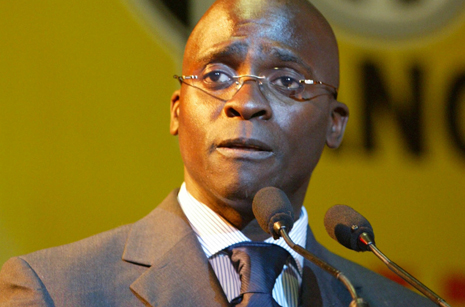
Gigaba was not in the Zuma camp at the start of the Polokwane conference. He was at the end of it. It is a mark of how dexterous and shrewd Gigaba is that he read the signs then and changed camps midway through the conference. This time though, he is firmly entrenched as one of Zuma’s right-hand men. He is highly ambitious and is well on his way to turning his government portfolio into a super ministry. It is not accidental that Gigaba has access to tremendous resources vested in state-owned enterprises and he is not afraid to shake the money tree. He is media savvy and knows how to market himself. Gigaba is likely to be one of the main speakers on behalf of the Zuma camp during the conference. Mangaung is his ticket to the fast lane.
Kabelo Mataboge
Mataboge is engaged in an unseemly and complex scrap with the chairman of his province, Supra Mahumapelo. The North West is divided into two distinct camps, with Mataboge as provincial secretary leading one of them. He survived an assassination attempt two weeks ago, but is more crushed that he has not been able to deliver his province to the Forces of Change during the nominations process. The North West backed Zuma despite a hard fight by Mataboge and his supporters. Mahumapelo has the support of Luthuli House and Mataboge does not. However, Mataboge is smart and has more staying power than Mahumapelo. He will be fighting to make his voice heard at Mangaung, as he has a point to prove.
Ronald Lamola
Unfortunately for the acting ANC Youth League president, on top of trying to advance the Forces of Change agenda at Mangaung, Lamola has the additional burden of Malema on his back now. As the league deputy, he was assigned to keep Malema’s seat warm after his expulsion and campaign for the sanctions to be overturned against Malema and others. He was also charged with the “economic freedom” campaign in Malema’s absence. But then Lamola started to settle into his role and decided to be less confrontational in order to avoid going the same way as Malema and his cohorts. This made Malema think Lamola was “selling out”. The two are now involved in an ugly spat, which mediation attempts have failed to patch up. The fight has disorientated the Youth League. Still Lamola is mandated to fly the nationalisation flag at Mangaung, which he will be all out to do. After Mangaung, if Malema’s expulsion is not overturned, Lamola will be in a battle to retain the leadership of the League as another elective conference will have to be held to replace Malema. He therefore has to prove his mettle in Mangaung.
Buti Manamela
The national secretary of the Young Communist League (YCL) is caught between a rock and a hard place in terms of which delegation he will be in at Mangaung. He is trying to be accredited as a branch delegate for Limpopo, as this will give him voting rights. The Limpopo provincial leadership is determined that he should not be part of their delegation as he is a key campaigner for Zuma’s second term. Last week they did not allow him into the province’s nominations conference despite a concerted battle on his part to get in. If he is not accredited by Limpopo, he will have to be part of the South African Communist Party (SACP) delegation, which has non-voting status at Mangaung. Manamela was once SACP general secretary Blade Nzimande’s sidekick, but is now clearly having trouble defending some of Nzimande’s outrageous positions and statements, and is trying to cut his own space. In order for him to have a political life after the YCL, he will have to detour from the SACP’s road to nowhere and break into the ANC mainstream. Mangaung is his opportunity to turn on the indicator.
David Makhura
Makhura has become one of the ANC’s policy czars, and is earning respect for his crusade to promote organisational renewal in the ruling party. As provincial secretary in Gauteng, he is using his strategic position to champion a process to clean up the ANC, make it smarter, more efficient and less corrupt. He has universal support in principle for this process – whether it will happen in reality is something else. His mild manner and non-threatening demeanour has earned him the trust of Luthuli House – even though he is central to the Forces of Change campaign – and he is one of the people charged with working on policy formulations during the conference. Makhura is destined to be a candidate for ANC secretary general at a future conference – Mangaung will be a big stepping-stone to getting there.
David Masondo
Masondo was a rising star in the SACP until he famously fell out with Blade Nzimande, who found the former YCL chairman’s intellectual prowess annoying. The SACP tried to take disciplinary action against him for breaking ranks with the party, particularly after his criticism that the Zuma presidency had distorted black economic empowerment, making BEE into ZEE (Zuma economic empowerment). After a break from politics to undertake his Doctoral studies in economics at the New York University, Masondo returned to South Africa to take up the position as MEC for Finance in Limpopo. However, his department is now under administration by the Treasury as part of the national government’s intervention in Limpopo. Masondo is a lead campaigner for radical economic policy change in the ANC, and is essentially Mr Nationalisation, spilling out facts and figures to support the case for strategic nationalisation of key sectors of the economy. He will be a key player in the economic policy discussions and is not someone who surrenders ground easily.
Sihle Zikalala
Zikalala was the guy who started the trouble at Polokwane. On day one of the 2007 conference, Zikalala, then ANC Youth League secretary general, got up to contest the electronic voting system. This set off the rebellion at the conference, which eventually led to the change of guard in the senior leadership of the party. Zikalala is now provincial secretary in KwaZulu-Natal and is therefore in another strategic position at this conference. With Mkhize, Zikalala has tried to broker a cessation of hostilities at Mangaung so that Zuma is uncontested for the presidency. However they have not been able to get the Forces of Change onside. Zikalala is likely to be central to behind-the-scenes negotiations with other provinces on NEC and policy positions.
Febe Potgieter-Gqubule
Potgieter-Gqubule was one of the drafters of the controversial Second Transition document that consumed the June policy conference. She is being primed as a policy expert in the party, particularly on the issue of strategy and tactics. Potgieter-Gqubule was this week appointed as an advisor to the African Union Commission, where she will work with AU Commission Chairwoman Nkosazana Dlamini-Zuma. They are likely to be a dynamic team. She has been nominated for the position deputy secretary general by Gauteng but does not have sufficient support in other provinces for the post. However Potgieter-Gqubule is a policy chief in the making and is someone to watch in 2017.
Lindiwe Zulu
Zulu is Zuma’s foreign policy advisor and therefore has the ear of the president. In the ANC, she is positioning herself as a foreign policy expert but is also a smart operator, able to articulate party positions on the turn. At the conference, she will be an enforcer of the Zuma camp.
Zwelinzima Vavi
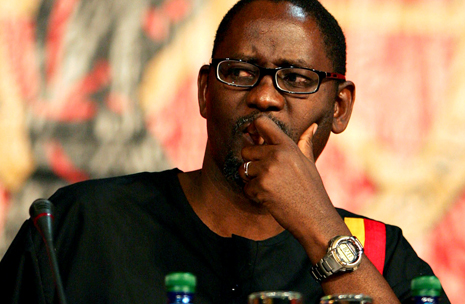
Vavi is dying for a chance to be let loose at Mangaung. However, he is constrained by the positions adopted at the Cosatu Congress and as general secretary, he has to represent these positions rather than his own contrarian views. Vavi has been nominated for a position on the ANC NEC but is reluctant to accept nomination, as he wants to maintain independence to represent only Cosatu. Years ago, the plan was to have a succession plan in Cosatu to free Vavi to take on a senior position in the ANC. The plan fell through when it became obvious that there would be heavy contestation in Cosatu if he left. He also earned himself detractors within Cosatu and the ANC for being too critical of government. He is still likely to be vocal at Mangaung on issues of corruption, government performance and economic policy. Vavi is outgrowing Cosatu and will have to venture out of the safety zone at the next congress.
Magdalene Moonsamy
With Julius Malema not allowed into the Mangaung conference as an expelled member, the closest he has to a proxy is Magdelene Moonsamy. She is fiercely loyal to the former youth league leader, though she is much gentler in articulating his controversial positions. However, she can also bare her teeth, as was demonstrated in an online spat with Deputy Communications Minister Stella Ndabeni. Moonsamy is also chief operations officer at the National Youth Development Agency and will be looking to protect any territory where the Malema crowd still has influence. Moonsamy is, however, in a dangerous gamble, as Malema continues to sink in troubled waters: standing by him might prove to be career-limiting.
Irvin Jim
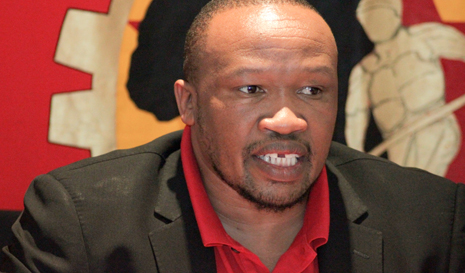
Numsa’s Jim had the wind taken out of his sails by the Cosatu congress. Before that, he was marching towards drastic change at Mangaung. Then his own union, the National Union of Metalworkers of SA, and Cosatu decided that Zuma should remain president. Jim is as far left in the alliance as you can get, and he is now advocating for a takeover of the NEC by trade unionists in order to impel wholesale changes to economic policy, including nationalisation of the Reserve Bank, mines, land and monopoly industries without compensation. Give him a mic and he can rattle off for hours about why South Africa needs to change its economic trajectory. Jim is baying for the fight he never got to have at the ANC policy conference and the Cosatu congress. DM
Photo: Jacob Zuma (C), leader of South Africa’s ruling African National Congress (ANC), waves to his supporters as he walks next to Tokyo Sexwale (L) and Zweli Mkhize, provincial chairman of the ANC, in Kwazulu Natal August 5, 2008. Reuters/Rogan Ward


















 Become an Insider
Become an Insider